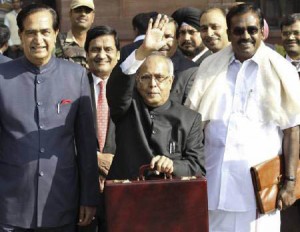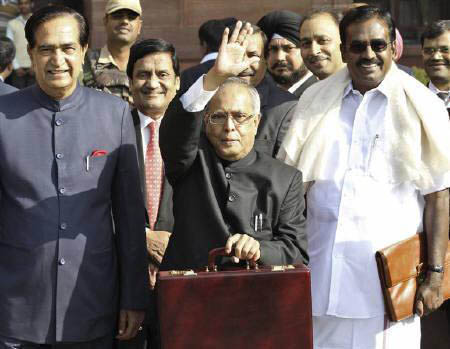By: Ravi Sinha
Track2Realty Exclusive
 When the Finance Minister Pranab Mukherjee proposed home buyers to withhold 1% of the sale consideration as Tax Deducted at Source (TDS), it became a free-for-all kind of football match with developers and property consultants alleging that it could encourage black money component in real estate, while tax consultants believed otherwise and pointed out that the reach of the banking sector in rural area makes it easier to detect unsavoury deals. There were certain others who thought though the intention is good, but an administrative challenge to implement.
When the Finance Minister Pranab Mukherjee proposed home buyers to withhold 1% of the sale consideration as Tax Deducted at Source (TDS), it became a free-for-all kind of football match with developers and property consultants alleging that it could encourage black money component in real estate, while tax consultants believed otherwise and pointed out that the reach of the banking sector in rural area makes it easier to detect unsavoury deals. There were certain others who thought though the intention is good, but an administrative challenge to implement.
Beyond this debate, however, the realty sector yet again cribbed that the government doesn’t heed to its genuine demands and their representation to the ministry is either not entertained or not taken seriously despite of their contribution to the GDP growth. With Real Estate Regulatory Bill, Land Acquisition and Resettlement & Rehabilitation Bill and many other contentious issues already on the anvil in the days to come, it seems the Finance Minister this time decided to demolish the perception that “Realty Proposes & Government Disposes.”
As a result, the Finance Ministry evaluated the representations of industry bodies like CREDAI and NAREDCO and scrapped the proposal to levy a 1% tax deduction at source (TDS) on real estate transactions that was introduced in March as part of the Budget in a bid to deter the widespread flow of black money into the real estate sector. As per the Budget speech, the seller of any property valued at R50 lakh in urban areas and R25 lakh in rural parts had to deduct 1% TDS from the buyer. Without the TDS, the property could not proceed for registration in the buyer’s name. The proposal was to “deter the generation and use of unaccounted money,” in the realty transaction, Finance Minister Pranab Mukherjee had categorically said this in his Budget speech in March.
Now with the TDS cut gone, the industry has reacted on the expected lines and hailed the move and suggests the government should resort to alternative methods to curb the circulation of the black money in the sector. For example, some states have slashed the stamp duty on real estate and that has helped reduce the flow on unaccounted money into such transactions.
“It’s good that the government has abolished it as it was becoming another burdensome proposal, adding to red-tape,” says Ravi Ahuja, Executive Director at property consultant Cushman & Wakefield.
“As a process and concept it was very good, as it would have brought all deals under scrutiny, but the implementation would be almost impossible,” says Anuj Puri, country head for Jones Lang LaSalle. “The implementation was going to be a very tedious process,” he adds.
MCHI-CREDAI has welcomed the move Finance Minister’s decision saying this will help generate positive trends, though in a limited way, in the real estate market. MCHI-CREDAI President Paras Gundecha has also urged the Finance Minister to take much more pragmatic steps like easy loans at concessional rates of interest for home buyers to help revive buying trends in the industry. Real Estate contributes handsomely to GDP and it is vital for the economic growth, he says.
Atul Modak, Head of Kohinoor City says it is well known that real estate industry is already going through the tough phase with increase in debt ratio and lower sales, and hence this announcement of TDS cut on realty deals has made industry rejoiced. It gave the investor and the customer breath to inhale in such a tight roped scenario. According to him, from the developers and buyers point of view it is win a win situation and good move by the Central Government for the real estate industry to unwind back.
“Since this industry is vital for the country’s economic growth the Central Government should take such realistic pragmatic measures. Initially there was burden of hiked stamp duty by 5% and tax rate to curb black money inflow, but this step has definitely slashed burden from camel’s back. The application of TDS was to be effective from October 1 this year which will now attract the investors to re-invest capital in properties. Buyers won’t be reluctant to deal in property market as TDS burden is not levied relaxing the burden on their shoulder,” says Modak.
Ravi Saund, COO, CHD Developers believes TDS along with buyers’ providing personal details would have made the whole process of property transaction very complicated. “This indeed is a welcome move and will generate positive sentiments. We are glad that the government rolled back the 1% TDS proposal on immovable properties. This has decreased the burden of the buyer who had to deduct the amount and submit it with the tax authorities. The roll back of the TDS will make the buyer easily accessible for a property transaction. Earlier the entire procedure of the TDS was complicated as the buyer had to provide personal details along with the property details and mentioning of the seller in the tax deduction form,” says Saund.
There is a general feeling in the sector that the TDS, if not removed, could have dampened sales in an already sluggish market. The various industry bodies in their representation had suggested that the government can easily find out details of any deal from the stamp duty and registration data, which is available every month. They had said that the TDS is suitable when dealings are between businesses as they are familiar with tax laws. Industry body had said that the administrative hassle may end up being completely unnecessary.
The government, on its part, realised that a large chunk of property transactions involve sellers who are either upgrading or relocating their house. Moreover, it was also felt that while 1% of the ready reckoner rates or agreement value is not a large amount, it will be an administrative challenge to implement. The Finance Ministry was also advised that though the measure is aimed at creating a reporting structure for property transactions, it would not only create the administrative hassle but also give the impression of introducing a fresh tax liability, which has not been the case. Thus, in the end, as they say, all is well that ends well.





